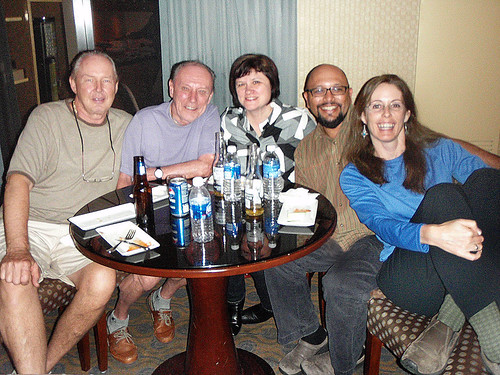SQUEEEEEEE!!!!!
I have a wee bit of news to share.
CHAINS is the winner of the 2009 Scott O’Dell Award for Historical Fiction.

Here is the formal language: “Laurie Halse Anderson has won the 2009 Scott O’Dell Award for Chains (S&S, October 2008), narrated by teenaged Isabel Finch during the Revolutionary War. Although Isabel and her enslaved five-year-old sister were to be freed upon the death of their mistress, the woman’s heir sells the siblings to a new owner in New York City–that is the first of the betrayals that lie ahead, but also the beginning of Isabel’s fight for freedom. The award, established by O’Dell (best known as the author of The Island of the Blue Dolphins), is given annually to a meritorious work of historical fiction and includes a $5,000 prize.Chains was also a National Book Award Finalist, just like Anderson’s debut novel, Speak(Farrar, Straus & Giroux, 1999).”
I found out Friday night and have been walking around with my hands clenched over my mouth ever since because I wasn’t supposed to tell anybody. I formally apologize to my writer’s group for not even telling them. I offer to make cake for our next meeting as my penance. Or bread. I’m better at bread than cake. (Paging Marie Antoinette…)
This is an unbelievable honor – one that I never imagined my work would receive. It feels delicious and bubbly and affirming and huzzah! huzzah! The hardest part is I want to tell Isabel and it takes so long for letters to reach the 18th century!
OK, I’m pretty much not capable of forming any other complete sentences.
Except for THANK YOU!!!!


